 |
| MSc. Pham Thi Khanh Ly believes that bringing AI into schools requires teachers to transform and adapt. (Photo: NVCC) |
That is the opinion of Ms. Pham Thi Khanh Ly, Vice President of the School Board, Executive Director ofFPT School in Hanoi and Hai Phong, FPT General System with The World and Vietnam Newspaper about the story of applying artificial intelligence (AI) in schools.
Ms. Pham Thi Khanh Ly emphasized that teachers must participate in AI training courses. Schools should encourage teachers to apply technology tools to prepare lesson plans, assign homework, and test students. At the same time, regularly organize competitions and launch a movement to research and apply technology in teaching. This is how we break the mold and "install" technology thinking in teachers.
In your opinion, why is the initiative of teachers in using technology so important in the present era? What barriers are causing some teachers to be hesitant in applying technology in teaching?
In the digital age, technology is the foundation for education . Teachers' initiative in using technology is a key factor in innovating teaching methods, increasing interaction and personalizing learning. When teachers apply technology systematically, the classroom will become more lively, students will participate more actively, and learning outcomes will also improve significantly.
Of course, there are still some barriers, such as the “fear of making mistakes” mentality, many teachers are not really confident, and hesitate to try new things. At the same time, traditional teaching habits have been formed for a long time, changing the mindset will require the accompaniment and facilitation from the school. In addition, uneven technology infrastructure is also a big obstacle.
Apart from keeping up to date with new technologies, what technological skills do teachers need to equip themselves with to effectively support teaching and learning? Can you share any specific examples?
Technology changes constantly, but there are fundamental skills that teachers need to equip themselves with, such as digital learning material design skills, digital classroom management skills, or learning data analysis skills to monitor student progress and make appropriate adjustments.
Nowadays, many teachers have actively exploited AI tools to design learning materials and build attractive lectures, stimulating students' interest in learning. For example, a Literature teacher can develop a social discussion chatbot to help students look up information, automatically grade their writing and suggest ways to improve the content. Or a Math teacher can create animated characters to accompany students during class, convert text to speech, images, vivid visual videos, train AI assistants to synthesize learning materials and assign practice exercises.
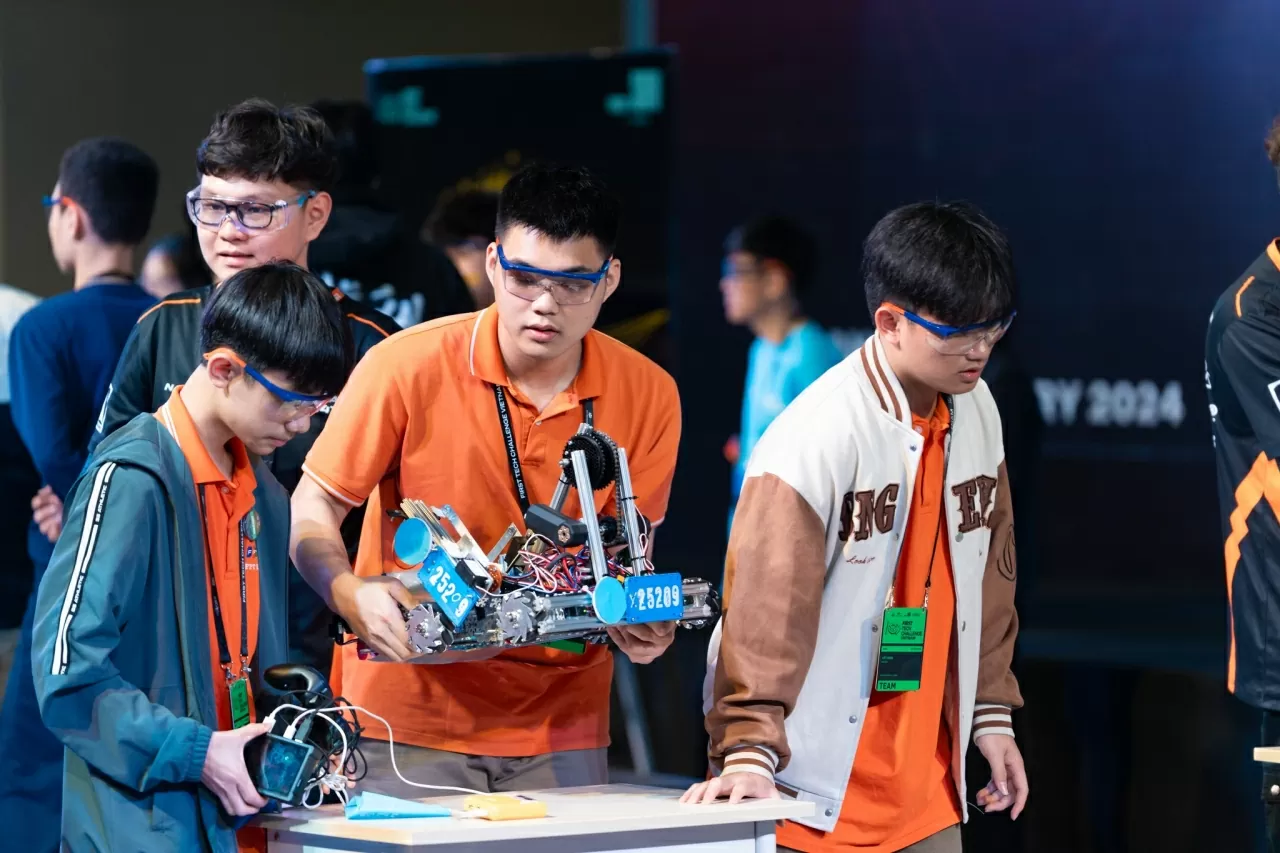 |
| Nowadays, many teachers have actively exploited AI tools to design learning materials and build engaging lectures, stimulating students' interest in learning. (Photo: NVCC) |
At this time, what policies and support do schools and education management agencies need to have to encourage teachers to use technology effectively? How can we create a learning environment where teachers and students can co-create with technology?
The first thing is to build a culture of innovation in schools. I believe that we should not only provide tools, but also create an environment that respects individuals, where teachers "dare to try, dare to make mistakes, dare to create". Teachers and students become companions in creating knowledge.
To create an environment that encourages teachers and students to experience new technologies together, schools need to invest time and resources for teachers to research and test new technologies, as well as have a mechanism to recognize and honor technological initiatives in teaching.
In my opinion, teachers should be trained in AI. Schools should encourage teachers to apply technology tools to prepare lesson plans, assign homework, and test students. At the same time, regularly organize competitions and launch movements to research and apply technology in teaching. This is how we break the mold and "install" technology thinking in teachers.
How can we ensure that teachers have access to the latest technology and are properly trained? Is there a way to evaluate and measure the effectiveness of technology in teaching and learning?
To evaluate and measure effectiveness, it is possible to combine quantitative data such as student scores, the rate of students participating in lessons, the level of student satisfaction with the application of technology in the subject... In addition, teachers can also evaluate through observation and record actual feedback in the classroom. The most important thing is to create habits and thinking of using tools, self-assessment capacity and continuous improvement of teachers in the process of applying technology in teaching.
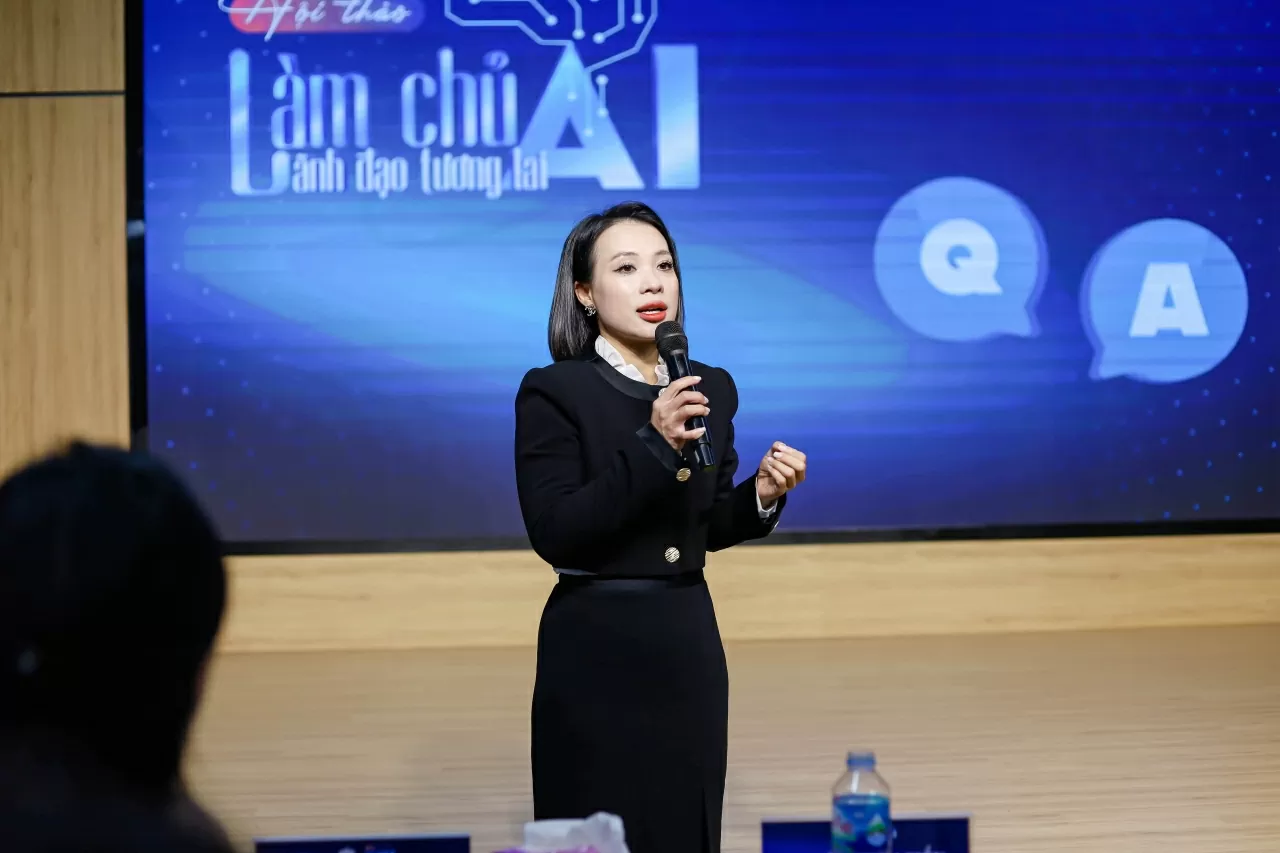 |
| MSc. Pham Thi Khanh Ly shared that teachers are the factors that spread innovation in schools. (Photo: NVCC) |
What criteria should be used to evaluate teachers' success in using technology?
A successful teacher using technology is not necessarily the best at using the tool, but rather what value and experience the teacher creates for the student's learning process. In my opinion, there are some criteria that can be used to evaluate.
First, the level of technology integration in teaching and learning. Successful teachers are those who know how to use technology naturally and fluently, helping to clarify knowledge, improve learning outcomes, increase students' ability to respond, remember and be creative.
Second, the ability to personalize learning experiences for students. For each subject and student group, technology applications can help teachers design unique learning experiences such as gamifying lessons, online interactions, and real-life projects that integrate technology.
Third, the ability to promote creativity and train students in searching, evaluating information, critical thinking, and exploiting technology ethically and responsibly. In my opinion, there should be clear regulations on the levels of AI use in learning. Teachers also play the role of monitoring, exchanging and checking, to ensure that students truly understand the lesson and are not dependent on technology.
Finally, it is the initiative, continuous learning, updating new trends and willingness to share experiences with colleagues. Such teachers will be the factor that spreads innovation in schools.
What do you envision the future of education to be like as technology continues to advance? What do teachers need to do to prepare for these changes?
The future of education is personalized learning and lifelong learning. I believe that the explosion of new technologies, especially AI, will bring teachers back to their rightful role, not only as knowledge transmitters, but also as journey creators, helping students learn to be creative and discover their hidden potential.
To adapt to that future, teachers need to have an open mind and be willing to continuously learn, flexible technological capabilities, and the skills to mentor and guide students to become independent and self-learning. Education is not just limited to the classroom; in the near future, teachers will be the ones guiding students to explore the digital world while still staying connected to the real world.
Thank you!
Source: https://baoquocte.vn/dua-ai-vao-truong-hoc-giao-vien-phai-dam-thu-dam-sai-dam-sang-tao-308647.html







![[Photo] General Secretary To Lam receives the Director of the Academy of Public Administration and National Economy under the President of the Russian Federation](/_next/image?url=https%3A%2F%2Fvphoto.vietnam.vn%2Fthumb%2F1200x675%2Fvietnam%2Fresource%2FIMAGE%2F2025%2F12%2F08%2F1765200203892_a1-bnd-0933-4198-jpg.webp&w=3840&q=75)
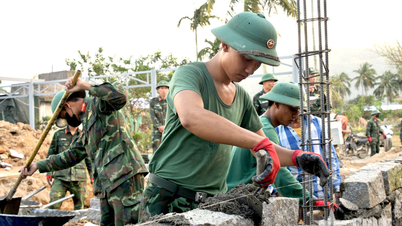

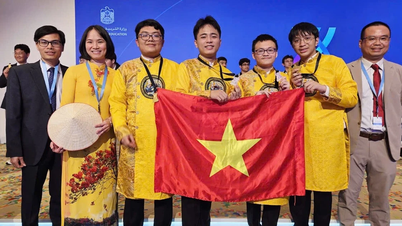

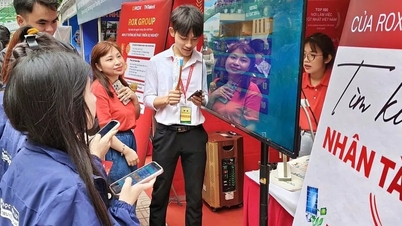



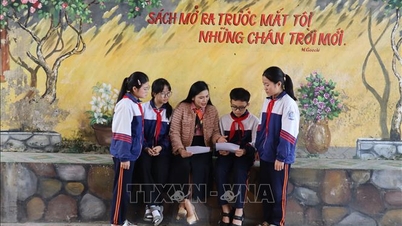

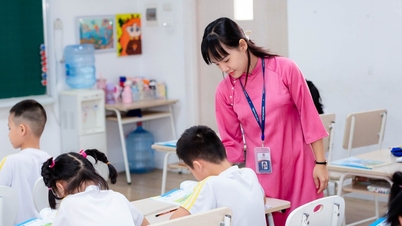






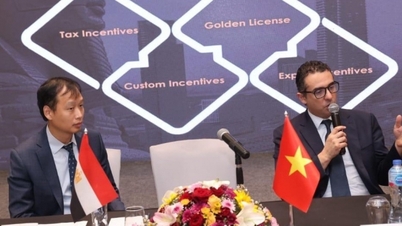



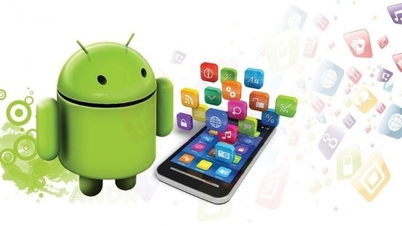



















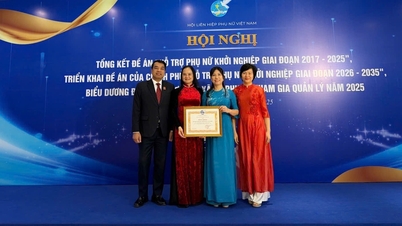




















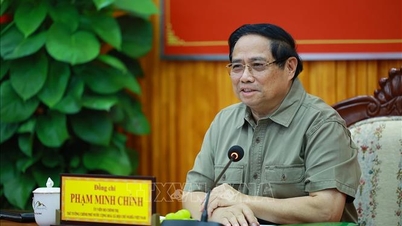


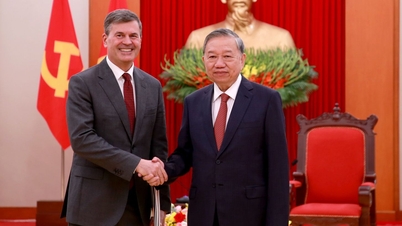






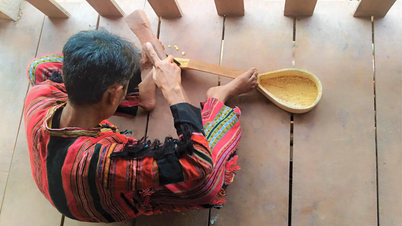


















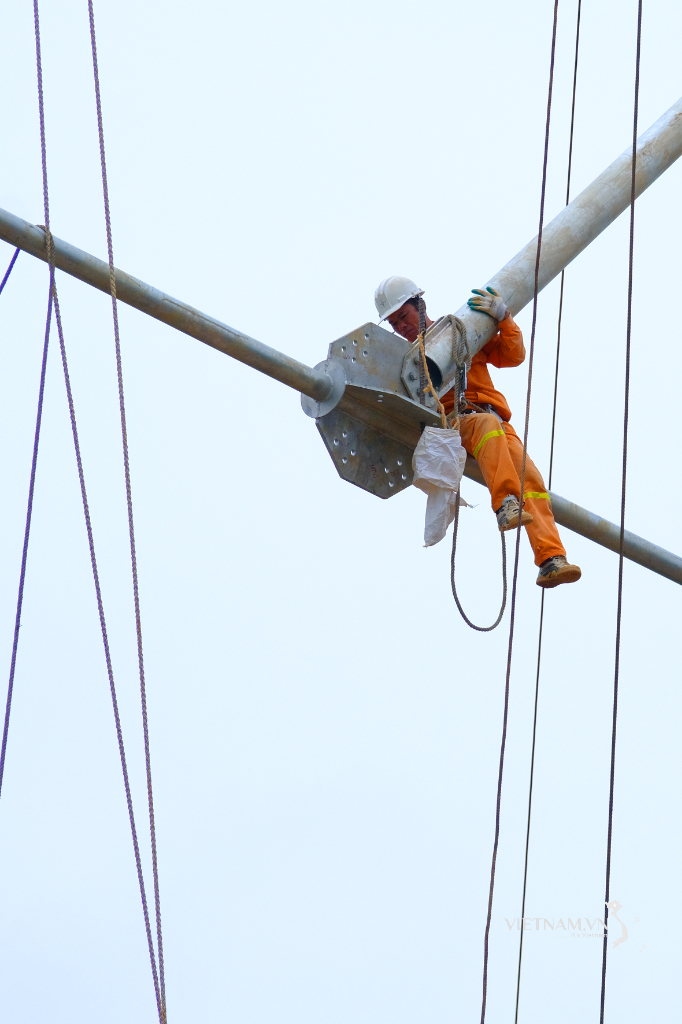







Comment (0)